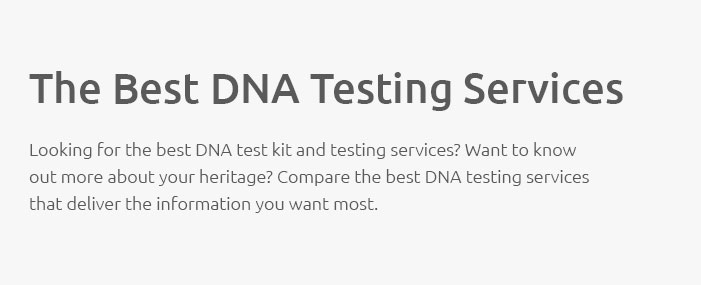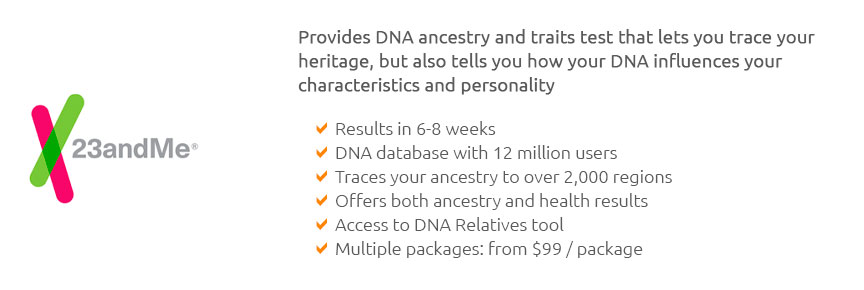 |
 |
 |
|---|
 |
 |
|---|
 |
|
|---|---|
 |
 |
 |
 |
 |
 |
 |
 |
 |
 |
 |
 |
 |
 |
 |
 |
|---|
Exploring the Accuracy of Genealogy DNA TestsIn recent years, genealogy DNA tests have become increasingly popular as individuals seek to uncover their ancestral roots and connect with long-lost relatives. However, a question that often arises is: how accurate are these tests? To delve into this, it's essential to consider the different types of tests available and the methodologies employed by various companies. The most common tests include autosomal DNA tests, Y-DNA tests, and mitochondrial DNA (mtDNA) tests, each offering unique insights into one's heritage. Autosomal DNA tests are perhaps the most popular, used by companies like AncestryDNA and 23andMe. These tests analyze the 22 pairs of autosomes, or non-sex chromosomes, inherited from both parents. They provide a broad overview of one's ethnic background and potential familial connections within the last five to seven generations. However, the accuracy of these results can vary due to the reference populations and algorithms used by each company. For instance, while AncestryDNA boasts a large database that enhances its predictive accuracy, it's crucial to remember that results are based on probability rather than certainty. Meanwhile, Y-DNA tests trace paternal lineage by examining the Y chromosome, which is passed from father to son. This test is limited to individuals with Y chromosomes, typically males, and offers insights into deep ancestral origins, often extending back thousands of years. Companies like FamilyTreeDNA specialize in Y-DNA testing, providing detailed haplogroup information. However, the depth of accuracy can depend on the number of markers tested, with more markers generally leading to more precise results. Mitochondrial DNA tests explore maternal ancestry by analyzing the mitochondrial DNA passed from mother to child. Both males and females can take this test, offering insights into ancient maternal lines. Similar to Y-DNA tests, mtDNA tests from companies such as MyHeritage can reveal deep ancestral roots, yet their immediate genealogical value might be limited due to the slow mutation rate of mtDNA. When evaluating the accuracy of genealogy DNA tests, it's imperative to understand that while they offer valuable clues, they are not definitive. Factors such as sample quality, the size of reference databases, and the specific algorithms used can all influence outcomes. Consumers should also be aware that DNA testing companies continuously update their databases, which can lead to changes in ethnicity estimates over time. This dynamic nature underscores the importance of viewing results as part of a larger genealogical puzzle rather than an absolute answer. Additionally, each testing company offers distinct tools and resources that can enhance or hinder the user experience. For example, AncestryDNA's extensive family tree-building tools can significantly aid in connecting with relatives, while 23andMe's health-related insights provide a broader context beyond genealogy. However, it's vital for users to approach health interpretations cautiously, as they are not a substitute for professional medical advice.
Ultimately, the accuracy of genealogy DNA tests should be assessed within the context of one's personal goals and expectations. While these tests can illuminate fascinating aspects of one's heritage and familial connections, they are best used as a complement to traditional genealogical research rather than a standalone solution. As technology advances and databases expand, the precision of these tests will likely improve, offering even greater insights into our complex ancestral tapestries. https://www.ancestry.com/c/dna-learning-hub/ancestrydna-test-accuracy
With current technology, AncestryDNA has, on average, an accuracy rate of over 99 percent for each marker tested. Precision of Your Results. When you take an ... https://www.theguardian.com/lifeandstyle/2018/aug/11/question-ancestry-does-dna-testing-really-understand-race
There are many scientific limitations to the home DNA test. These companies aren't actually testing your ancestry at all, says Mark Thomas ... https://www.reddit.com/r/AskAnthropology/comments/lq4kzf/is_ancestry_dna_accurate_or_just_an_estimate_of/
As such, genetic test results can vary wildly in their approximation of ethnic ancestry.
|
|---|